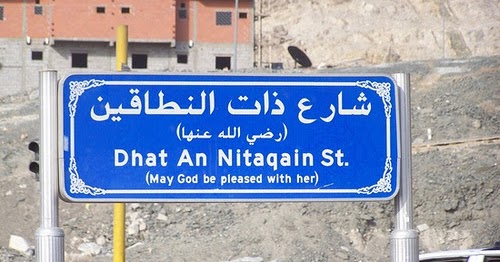The Shariah includes both faith and practice. It embraces worship, individual attitude and conduct. It also includes social norms and laws, whether political, economic, familial, criminal, or civil.
What is Shariah?
In its fullest sense, the Shariah is virtually synonymous, and can be used interchangeably, with the word deen, which can only inadequately be translated as “religion.” Deen literally means “way of life,” “submission,” “following,” or the “way.”
Though the word Shariah in its various derivative forms is found in five places in the Quran, its extensive use only came into vogue much later, for the words Islam and deen were more commonly employed to express the same meaning in the early days of Islam.
The Shariah includes both faith and practice. It embraces worship, individual attitude and conduct. It also includes social norms and laws, whether political, economic, familial, criminal, or civil.
Sometimes, it may also be used to imply, in a more restricted sense, do’s and don’ts-the rules and regulations for conduct and behavior.
Lastly, it is also used as the equivalent of the Islamic laws.
The Shariah is thus nothing less than the divinely ordained way of life for man. To realize the divine will, man must follow the Shariah.
To live in Islam is to live according to the Shariah. Giving up the Shariah or any part of it knowingly, willfully, or deliberately is tantamount to giving up Islam.
A Muslim must therefore do his utmost to observe and to implement the whole of it, wherever and in whatever situation he finds himself. Hence the Muslim insistence, persistence, commitment, and passion for it.
Essence of Shariah
To understand the essence of the Shariah, one must understand the relationship between man and God that Islam lays down.
There is no god but One God; Muhammad is the Prophet of God: This simple sentence is the bedrock of the Islamic creed.
God is the Creator; to Him alone, therefore, belongs the kingdom and He is the only Sovereign.
{Surely Your Lord is God who has created the heaven and the earth… verily to Him belong the creation and the sovereignty} (Al-A`raf 7:54).
And
{He has created the heavens and the earth with a purpose. He wraps night about day and He wraps day about night… He has created you from one being… That then is God, your only Lord; His is the kingdom. There is no god but He} (Al-Zumar 39:5-6).
God is the Creator. To Him alone, therefore, as his only Lord and Master, man must submit his entire being:
{Your God is One God, so only to Him submit} (Al-Hajj 22:34).
{That then is God, your Lord; there is no god but He, the Creator of everything. So Him alone serve} (Al-An`am 6:102).
God is the only true Provider. It is He Who has bestowed on man such faculties and capabilities as seeing, hearing, thinking, and articulating-attributes which man cannot live without, but which he cannot create for himself.
It is He Who has made available the resources of the external world which man may discover, exploit, and develop but again, cannot create.
Source of guidance
Yet surely man’s greatest need is to know how to live his life so as to fulfill successfully the purpose of his creation; how to relate himself to his Creator, to his own self, to his fellow human beings, and to everything around him.
To God alone he must therefore turn to seek guidance. For there is no one apart from or beside Him who can truly provide answers to man’s eternal questions or is capable of guiding him. All else can only be speculation and conjecture.
And why should the One Who has provided even for man’s most trivial material needs, not also have provided for his more important moral and spiritual needs?
The Quran says,
{Say: Is there any of those you associate (with God) who guides to the Truth? Say: only God guides to the Truth. Does then, He who guides to the Truth deserve more to be followed or he who can guide not unless he be guided? What ails you? How judge you?
And most of them follow naught but speculation, and speculation can never take the place of truth} (Yunus 10:35-6).
And further,
{Or, do they (claim to) have associates who have laid down for them the Way for which God gave not leave} (Al-Shura 42:21).
It was to provide for this greatest human need that God sent His prophets from amongst men in all ages and to all nations, bringing them the light of the divine guidance revealed to them. Among them were Adam, Noah, Abraham, Moses, and Jesus. And Muhammad was the last of them, in no way different or new. May God bless all of them.
{He has laid down for you the Way that He entrusted to Noah, and that We have revealed to you, and that We entrusted to Abraham, Moses and Jesus. Establish fully the Way and follow not different ways} (Ash-Shu`raa’ 42:13).
God-man relationship
Man’s relationship to God is expressed by the very word Islam-submitting to Him by following His will and guidance as brought by His prophets.
But this submission must be total and all embracing. A Muslim submits his entire person to his Creator as his only Lord and Master. No part of his life can be exempt from the need of divine guidance or from the writ of divine sovereignty. God and His lordship and sovereignty are indivisible; and so is man’s life in its submission to Him.
It would indeed be an imperfect God Who could only be experienced or related to in the realm of the spirit or the provision of material needs like one’s daily bread-a God unconcerned, uncaring, or incompetent to help man in the more arduous and complex task of living his life.
Man has been given the freedom to reject God; but, once having accepted Him, he must follow His guidance. He is not free to follow one part of it and ignore another, nor to seek guidance from sources other than God. Denial of part is denial of the whole.
{What, believe you in part of the Book and deny part thereof? And what is the reward of those who do so except ignominy in the present life, and on the Day of Resurrection to be returned unto most grievous torment.} (Al-Baqarah 2:85)
{What, do they seek another way other than God’s Way; whereas unto Him submits whoso is in the heavens and the earth, willingly or unwillingly.} (Aal `Imran 3:83)
{And who seeks a way other than Islam, it shall not be accepted from him.} (Aal `Imran 3:85)
Human Freedom and Dignity
The act of total submission to God in accordance with the Shariah given by Him in no way diminishes human dignity, freedom, and responsibility.
The act of submission is the highest act of human volition and freedom, for it implies freedom to disobey God.
Indeed, in submitting to God, all the chains and shackles of every form of serfdom, servility, and bondage are broken, whether they be to other men, to ideas, to nature, to man-made objects, or to institutions. For before the affirmation of One God must come the forsaking of every false god.
More importantly, total submission to God elevates man to the state of khilafah, (viceregency), whereby he is accorded the highest place on earth by being endowed with reason, articulation, volition, freedom, and responsibility.
The responsibility to follow the Shariah according to the Quran (Al-Ahzab 33:72), is the fulfillment of amanah, the trust which even the heavens, the earth, and the mountains dare not bear.
* Based on the book Shariah: The Way to God, Published by The Islamic Foundation (1981).
The post What Is Shariah? appeared first on About Islam.
source
https://aboutislam.net/shariah/shariah-and-humanity/what-is-the-shariah/








 Today ,Saturday 1-1-1441, new Hajri Islamic year.
Today ,Saturday 1-1-1441, new Hajri Islamic year. 










 At the time, Asma was a young woman, approximately 27 years old. Realizing the difficulties that might be faced on their journey, her father took all of his wealth with him, in case he might need it to protect the Prophet, leaving nothing behind for his family.
At the time, Asma was a young woman, approximately 27 years old. Realizing the difficulties that might be faced on their journey, her father took all of his wealth with him, in case he might need it to protect the Prophet, leaving nothing behind for his family.
 We do not have freedom to determine everything we do, as we can see from our day to day lives. If we had absolute and complete freewill, everything we endeavored to do would work out for us.
We do not have freedom to determine everything we do, as we can see from our day to day lives. If we had absolute and complete freewill, everything we endeavored to do would work out for us.






